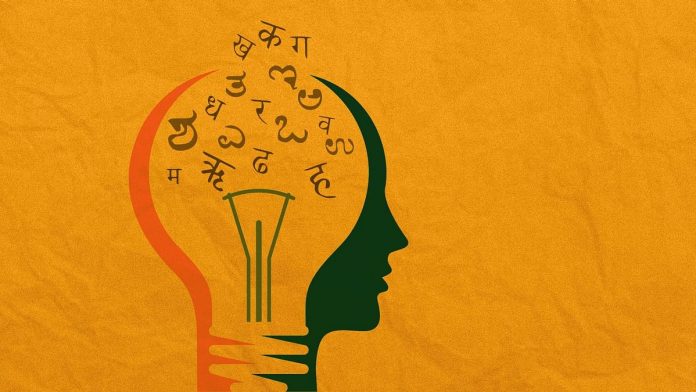This article is written by M.S.Bushra Tungekar from the University of Mumbai Law Academy. The author in this article analyses the draft bill of the higher education commission of India.
Table of Contents
Introduction
Too many cooks spoil the broth!
Has this been happening with the Higher Indian education system?
According to the AISHE report 2019, India currently has 993 Universities, 39931 Colleges, and 10725 Stand Alone Institutions.
The country’s majority of the universities, affiliated universities, and institutes are regulated by the University Grants Commission (UGC), and the All India Council of Technical Education (AICTE). Not only that there are other regulators for regulating professional courses such as medicine, agriculture, and law. They are regulated by the Bar Council of India (BCI), Indian Council of Agricultural Research (ICAR), the Medical Council of India (MCI), and the National Council for Teacher Education (NCTE).
The state universities and its affiliated colleges not only have to follow the rules and regulations laid by the national regulators as well as the rules and regulations laid down by the state government.
There are frequent complaints that these universities fail to provide for the quality of higher education. Many times the chairmen or the heads of such universities are appointed by political influences. UGC is criticized for its micromanagement and decline in the standard of higher education.
Ministry of human resource development prepared a draft higher education commission of India bill, 2018. The bill repeals the University Grants Commission Act, 1956. The bill aims at improving the quality and standard of education in India.
Introduction to the Higher Education Commission of India (HECI)
The HECI is supposed to replace the university grants commission (a statutory body) which has been responsible for the maintenance of the standard of higher education in India. HECI shall function as a body that lays down uniform standards for the development of education in India. The commission is a statutory body governed by the Higher Education Commission of India Repeal of University Grants Commission Act) Act 2018.(the bill is still pending).
Goals of HECI
- The aim of HECI is to decrease the number of regulators.
- To decrease the interference of the government in the management of the educational institutions.
- HECI claims that the regulation of higher education institutions will be more transparent.
- The HECI encourages public disclosures by specifying the various parameters of the academic outcomes and the academic performance by all the higher educational institutions.
- The accreditation system to assess the quality of higher education would be implemented by HECI. The system would be based on merits.
- The main aim of HECI is to improve the standard of higher education with the focus on learning outcomes, training of professors, and teachers, helping the institutions, and encouraging the use of technology for facilitating education.
- To provide higher education institutions more autonomy.
Highlights of Higher Education Commission of India Bill, 2018
- The bill establishes the Higher Education Commission of India by repealing the university grants commission.
- The main function of the HECI would be to maintain the quality of higher education standards. It plans to focus on the development of the educational standards by enabling specific learning outcomes, enforcing a vigorous accreditation system, closing institutions that fail to maintain the standards.
- The HECI will be empowered to grant authorizations to educational institutions for the commencement of academic operations. And will also have the power to revoke the authorization.
- The bill lays emphasis on striking a balance between the functional autonomy of the universities and the power of the regulatory authority.
Analysis of the bill
Functions
- Ensuring the maintenance of higher standards and autonomy of higher educational institutions. It shall provide standards for:
- Learning outcomes for courses of study.
- Lay down norms for teaching and research (training of the professors, development of curriculum).
- Evaluation and monitoring of the academic performance of the universities and the institutions on a yearly basis.
- Promoting research.
- Developing an efficient and vigorous accreditation system for the purpose of evaluation.
- Guiding the institutions in maintaining the required academic standard.
- Closure of the institute that fails to adhere to the requirement of maintaining minimum academic standards.
- Advisory to the central or the state government.
- Prescribing and declaring various parameters of academic performance.
- HECI shall also lay down norms and standards for:
- Authorization for grants to institutes which award degrees or diplomas to start its first academic operation.
- Norms related to the affiliation of universities with other institutions.
- Grant of flexibility, autonomy, and freedom to institutions regarding the development of the curriculum.
- Graded autonomy to institutions.
- Performance based incentives for the faculty of the universities and institutions.
- Lays down the procedure for the establishment and winding of an institute.
- Implementation of mechanisms to measure the employability of graduates and the effectiveness of the programmes.
- Creation of code of good practice.
- Eligibility and conditions for appointments of the office-bearers, such as the vice-chancellor, deans, principals, director of an institute, head of the department, etc.
- Regulation of the fees.
Composition
Selection cum search committee
A selection cum search committee will be established by nominating the names of the prospective candidates for the positions on the higher education commission. Selection cum search committee will consist of:
- A chairperson who is the Cabinet Secretary.
- Secretary of Higher Education.
- Members being three eminent academicians.
The Selection cum search committee shall submit a list of prospective candidates for the position of chairperson and vice chairperson. Based on this recommendation the central government shall make the appointment.
Eligibility to be on the Higher education commission of India
- The prospective candidate should be a professor of at least 10 years (preferably of institutions of national importance)/
- An eminent educational administrator having the capacity for governance of institutions.
- An Indian citizen or an overseas citizen of India.
The commission shall consist of 14 people
- Chairperson;
- Vice Chairperson; and
- 12 members.
- Three secretaries representing the union government (namely the secretary of Higher Education, Ministry of Skill Development and Entrepreneurship, and the Department of Science and Technology).
- Two Chairpersons of All India Council for Technical Education and National Council for Teacher Education.
- Two Chairpersons of the Executive Council/Governing Body of accreditation bodies.
- Two serving Vice Chancellors.
- Two serving professors.
- An experienced person from the industry.
Grant of Authorization
- Unless authorized by the Higher education commission of India no institution that awards a degree or a diploma shall start its first academic operation.
- With respect to already existing institutions, such institutions shall be deemed to have the authorization to grant degrees and awards for a period of three years.
- Application for Grant of authorization is to be made online and with the necessary documents or details as prescribed. The application must abide by the norms of the HECI.
- The HECI shall on receiving the application ensure that the norms have been adhered to and declare its decision to grant the authorization within a stipulated time.
- If the HECI decided to grant the authorization then, the commission must issue a public notice.
- The HECI has the power to revoke the authorization in cases where the institute or the university willfully defaults or has failed to discharge its duties to the full satisfaction of the HECI or it ceases to exist.
- When the HECI decides to revoke the authorization it must consider the interests of the students belonging to the concerned institute or the university. HECI must undertake measures to safeguard the interest of the students.
Penalties for non-compliance
- The university is liable for a penalty in the form of a fine, withdrawal of granting power, or direction to ceasing operations if it grants.
- Affiliation to any institute in contravention to the provisions or rules or regulations; or violates any norm or standard laid down by HECI; or fails to comply with any norms or regulations.
- On non-compliance with the penalty, the chief executive or the members of the management of the concerned institute shall be liable to be prosecuted established the Criminal procedure code and shall be liable to imprisonment for a term which may be extended up to three years.
Advisory Council
- The bill establishes an advisory council. The main function of the advisory council will be to determine issues relating to the coordination of implementing the laid norms and ways to resolve these issues.
- The advisory council will be chaired by the Union Minister for Human Resources.
- The advisory council must include the chairpersons or vice-chairpersons of all existing State Councils and members of the HECI.
- The advisory council shall also coordinate with the Central Government and the State Governments.
Issues in the Bill
Distribution of grants to the institutions
The bill fails to mention anything about the dispersion of grants to higher educational institutions. The Ministry of Human Resource Development stated that the dispersion of grants to the higher educational institutions shall be looked after by a separate and independent body. The body would follow an approach that would be based on merit.
More government interference
The structure of the HECI shows that there will be more government interference in the higher education sector. The structure of the advisory council and commission is such that there will be more government interference as compared to the academicians in the decision making process.
There are only 2 serving professors on the commission as members. In spite of this, the total number of members on the commission is 12. Rest are from the functionaries of the union government or the state governments.
Threat to autonomy
The bill states that it aims on providing more autonomy to universities and higher education institutions. However, one out of the many functions of HECI is to provide or specify the norms for grant of Autonomy and norms for freedom of the institutions.
Instead of providing more autonomy the HECI is enforcing more rules and regulations and has increased the control over the higher education institutions including the control over their financials.
HECI is to perform functions that are identical to the UGC and lay down norms for functions such as accreditation system, fee regulation, powers to impose a penalty.
Not only that the bill further empowers the commission to provide for norms regarding winding up of the institution and power to grant authorization to grant degrees or diplomas.
Difference between UGC and HECI
Jurisdiction
UGC: UGC had jurisdiction over the institution for higher education. Other professional councils had their own regulatory authorities.
HECI: It has jurisdiction over the universities and institutions for higher education for general subjects including the courses for law and architecture. The regulatory authority for law and architecture i.e the Bar Council of India and the Council of Architecture shall conduct the examination for entering the profession.
Financial powers
UGC: It not only sets the norms but also distributes grants to higher education institutions. It distributes the grants from its central funds.
HECI: Under the bill there is no mention regarding the distribution of grants. However, the grants may be disbursed by an independent and separate body as stated by the ministry of human resources development (MHRD).
Grant of authorizations
UGC: Under UGC, any university is permitted to grant degrees or diploma, if the university has been established under an act of parliament or is a deemed university or is established by the state legislature.
HECI: Unlike UGC the universities in order to grant degrees or diplomas require the permission of the higher education commission of India.
Accreditation
UGC: National Assessment and Accreditation Council autonomous body established by the university grants commission. NAAC conducts the assessment and accreditation of higher educational institutions.
HECI: The accreditation system shall be put in place by the HECI. The bill does not mention or provide any specifics of the accreditation system.
Composition
UGC: The university grants commission consists of 12 members only. The UGC specifically specified that the chairperson would not be an officer of either the union government or any of the state governments.
HECI: HECI would consist of 14 members, to be appointed by the Central government. The appointments are to be made based on the recommendation of the search cum selection committee established for the purpose.
Provision for Bogus institutions
UGC: The university grants commission publishes a list of bogus institutions regularly. UGC is empowered to discontinue the affiliation of the university, college, or institute in the event of contravention of its regulation.
HECI: HECI has the power to shut down universities or higher education institutions if they do not adhere to the rules and regulations laid down by HECI or if they fail to maintain the minimum standard of quality.
Road ahead
The UGC has been criticized for being mismanaged and for political corruption. One of the major flaws of UGC has been that it is overly regulated by multiple regulators which create a mess. UGC also restricts the autonomy of universities or higher education institutions.
However, the policymakers while framing the draft of the Higher education commission of India, fail to establish a progressive regulator to replace UGC. The HECI bill reflects only slight changes which is not the need of the hour. To overcome the drawbacks of UGC, there needs to be a full revamp of the regulator. The big flaws of UGC continue to exist even in the HECI bill.
Need for study
Before establishing a new regulator by replacing UGC there is a need to analyze in detail all the drawbacks and shortcomings of the UGC and its functioning. Based on the study a new regulator must be established addressing the drawbacks of UGC. The new regulator must provide for detailed procedures for funding, accreditation system, etc absence of which it would lead to chaos in the higher education system.
Independence of Search cum Selection Committee
The committee responsible for shortlisting the candidates for the HECI must be an independent body. The panel of the committee must consist of academicians, scholars, and national, international experts in the fields of education. It is important that such a body is free from any external or political influence.
Accreditation
A proper and vigorous accreditation system needs to be put in place. Accreditation means assessing the quality of higher education provided by an institution. It is important that such accreditations are not bought by the universities or institutions using money or corrupt ways.
The faculty members of the institutions should be regularly trained by the accrediting body so as to maintain and improve the quality of education.
Fee
Although the higher education institutions must be given autonomy in structuring the fee, there are universities and institutions that charge a fee that is arbitrary. The regulator need not make a rigid fee structure but rather set maximum limits of the fee which an institution will be permitted to charge. This will help in curbing the institutions from overcharging.
The current HECI bill is vague at so many places. It is ambiguous and lacks innovation. There is a need for making major improvements in the bill. The new regulator would not serve the purpose of improving the quality of higher education by overcoming the drawbacks of UGC.
Reference
LawSikho has created a telegram group for exchanging legal knowledge, referrals and various opportunities. You can click on this link and join:
 Serato DJ Crack 2025Serato DJ PRO Crack
Serato DJ Crack 2025Serato DJ PRO Crack











 Allow notifications
Allow notifications


